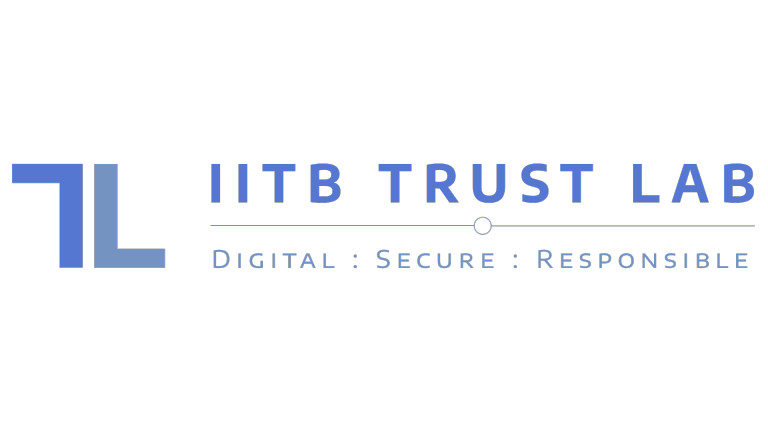Keynote Speakers *

Jintai Ding
Professor of Mathematics, Tsinghua University, Beijing, China
Title: Post-quantum Cryptography, A New Era
Abstract: Public key cryptosystems (PKC) are the security foundation of modern communication systems, in particular, the Internet. However Shor's algorithm shows that the existing PKC like Diffie-Hellmann key exchange, RSA and ECC can be broken by a quantum computer. To prepare for the coming age of quantum computing, we need to build new public key cryptosystems that could resist quantum computer attacks. In this mimincourse, we will give an introduction to post-quantumcryptography and its recent developments, in particular, the NIST standardization process and its impact. Then we will present a practical and provably secure key exchange protocol based on the learning with errors problems, which is conceptually simple and has strong provable security properties. This new construction was established in 2011-2012. We will explain that all the existing LWE-based key exchanges are variants of this fundamental design
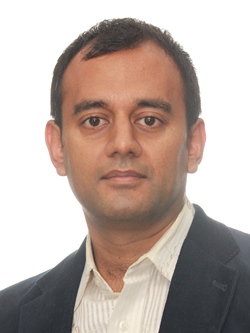
Anupam Chattopadhyay
Associate Professor, School of Computer Science and Engineering, NTU Singapore
Title: Security and Privacyof Machine Learning
Abstract: Robust Machine Learning (ML) is arguably the most important technical challenge of current times, to address growing concerns about misuse of AI, violations of data privacy and stealing of trained models. The problem is only exacerbated by lack of explainability for Machine Learning decisions juxtaposed with tremendous rate of adoption of AI across all industries.In this talk, I will narrate a few research threads pursued in our group. First, I will present a theoretical understanding of adversarial attacks and countermeasures inspired by the same. Second, a case study with the intelligent perception module of a (semi-) autonomous vehicle will be discussed. In that, we will see how various techniques for enhancing robustness of an ML accelerator can be stepwise integrated. The last part of the talk with highlight new directions in ML, such as peer-to-peer federated learning, and how the data privacy is impacted in such scenarios.

Subhamoy Maitra
Professor (HAG) and Head, Applied Statistics Unit,Indian Statistical Institute, Kolkata, India
Title: A Cryptographic View to Quantum Paradigm
Abstract: In this presentation we will outline the most important issues related to cryptography and cryptanalysis with the advent of quantum technologies. The concepts related to quantum computation as well as communication will be briefly explained in this regard.
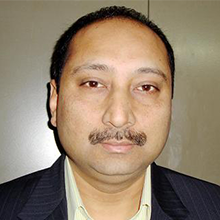
Saibal Kumar Pal
SAG Lab, Defense Research & Development Organization, Delhi, India
Title: Long-Term Cryptographic Security
Abstract: Cryptography provides a mechanism for secure communication between intended parties in the presence of both passive and active adversaries. The theory of cryptography is based on sound mathematical principles that ensures that plaintext messages cannot be recovered from the respective ciphertext even with adequate knowledge of the scheme, large amount of harvested data & powerful computational resources. This talk will elaborate on different algebraic structures and operations leading to the design of cryptographic schemes with strong security guarantees. Recent advances in cryptology & security requirements for new applications have motivated researchers to develop cryptographic schemes with additional properties. Progress in lightweight & homomorphic encryption would also be covered. The rapid growth of quantum computing technologies has threatened the security of currently used cryptographic schemes. Secure transfer of cryptographic keys using quantum channels would be discussed. Progress in quantum-resistant cryptography and suitability of different categories of post quantum cryptographic schemes would be discussed. Hybrid use of modern cryptographic methods along with quantum solutions for ensuring long-term security would also be elaborated.
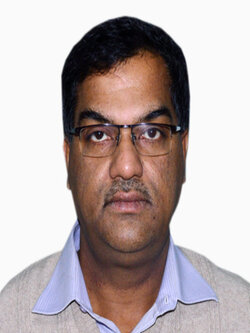
Debasish Roy
IPS, DG & IGP Railways, West Bengal, India
Title: Quantum Computing on Boolean Functions
Abstract:Boolean Functions are one of the most essential components of Cryptography. It is ubiquitously present in Symmetric Key cryptography, like AES, DES, etc. In cryptography, nonlinear Boolean functions are crucial components frequently utilized in constructing block and stream ciphers. The cryptographic properties of Boolean functions are directly related to the security of the nonlinear combiners, which is a distinctive model of stream ciphers. Nonlinear combining functions are an essential type in the design of stream ciphers, where the conjoining Boolean function's cryptographic properties directly impact the cypher's security susceptibility. AES and other contemporary algorithms have been designed using nonlinear cryptographic functions. Following a few observations on the underlying physical properties of information, Bennett and Fredkin proposed the concept of reversible computation. This brings up the ideas put forth by Benioff and Feynman regarding the potential for brand-new, fundamentally "quantum computers." Deutsch demonstrated how "quantum parallelism" can result in new algorithms and complexity classes if we can construct such devices. Shor's quantum factorization algorithm exemplifies this point significantly; unlike factorization procedures on a traditional Turing computer, it takes polynomial time. This finding may dramatically affect the security of numerous contemporary cryptography systems. This talk will discuss core concepts of quantum computing, including qubits, quantum registers, and reversible logic gates. With due acknowledgement to Bell and Einstein, the fundamental quantum property of "entanglement" will also be described. Following all of this theory, the state of experimental efforts to construct a quantum computer will be examined; it will become clear that much work remains before even small numbers can be factorized. In this talk, we will also explore the possibility of exploring unknown domains of Boolean Functions with Quantum Computer, mainly to inspire researchers to work in this area since it has many Open problems for which quantum computers will be helpful.
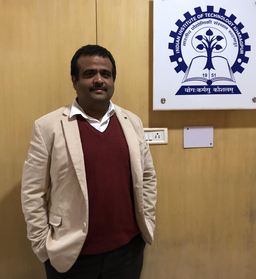
Sourav Mukhopadhyay
Professor, Department of Mathematics, Indian Institute of Technology Kharagpur, India
Title: How Secure is Your Data? Exploring the Power of Public Key Encryption, Functional Encryption, and Fully Homomorphic Encryption
Abstract: Cryptography, the art of secure communication, safeguards data through encryption and decryption techniques, playing a pivotal role in ensuring confidentiality, integrity, and authenticity in digital communications. From ancient ciphers to modern cryptographic algorithms, its evolution continues to address emerging security challenges. Traditionally, cryptography has been divided into symmetric-key encryption (SKE) and public-key encryption (PKE). In SKE, the same secret key is used for both encryption and decryption, posing a drawback when distributed through an insecure public channel, while in PKE, two types of keys are considered: the secret key (kept confidential to a user) and the public key (publicly available). Homomorphic encryption (HE), a primitive of PKE, enables computations on encrypted data while maintaining confidentiality. Fully homomorphic encryption (FHE) allows performing arbitrary computations (such as addition and multiplication) on encrypted data without decryption, ensuring privacy preservation throughout the computation. On the other hand, functional encryption (FE) focuses on revealing specific functions of encrypted data to authorized users. The collaboration between FHE and FE is rooted in their mutual objective of facilitating secure computation while upholding data privacy and access control, particularly in critical sectors such as healthcare and finance.
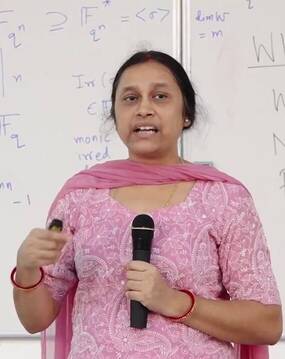
Ratna Dutta
Associate Professor, Department of Mathematics, Indian Institute of Technology Kharagpur, India
Title: Post quantum secure MFHE and IPFE in unbounded setting for untrusted cloud environment - instantiation and implementation
Abstract: The increasing popularity of smart technology has significantly increased the generation of electronic data. The increase in digital data quantity requires the appropriate management and communication of important data across various sectors. Cloud servers have demonstrated practicality and reliability for data storage, providing advantages such as effortless data transfer and cost-effectiveness in sectors including healthcare, social media, online storage, big data analytics and e-learning. Cloud computing represents a significant transition from conventional computing, enabling the processing, storage and sharing of data in less secure environments. With the growing use of cloud services by organizations, businesses, platforms and individuals, there is an urgent necessity of emphasizing data security and privacy. Traditional public-key encryption may be inadequate in meeting these requirements, resulting in increased interest in advanced cryptographic techniques such as functional encryption (FE) and fully homomorphic encryption (FHE). Moreover, ensuring post-quantum cryptographic security is essential, because traditional cryptographic systems based on number-theoretic concepts may be vulnerable to future quantum attacks. Therefore, illustrating post-quantum cryptography techniques is essential to maintain the security of digital systems in the era of quantum computing. Inner product functional encryption (IPFE) is a robust cryptographic technique that facilitates fine-grained access control over sensitive data in untrusted cloud environments. Multi-key fully homomorphic encryption (FHE) allows calculations on encrypted data from multiple parties without decryption, hence enabling secure collaborative data processing.In this presentation, I will present a multi-key FHE scheme and an unbounded IPFE scheme based on learning with errors (LWE) along with their implementation results.
* We would like to thank IIT Bombay Trust Lab for sponsoring the keynote talks. 